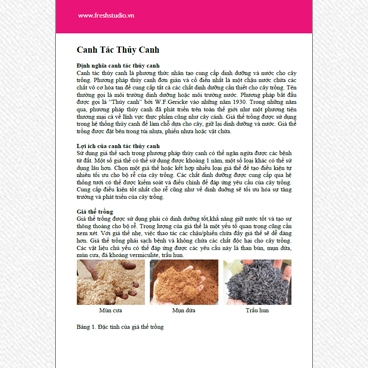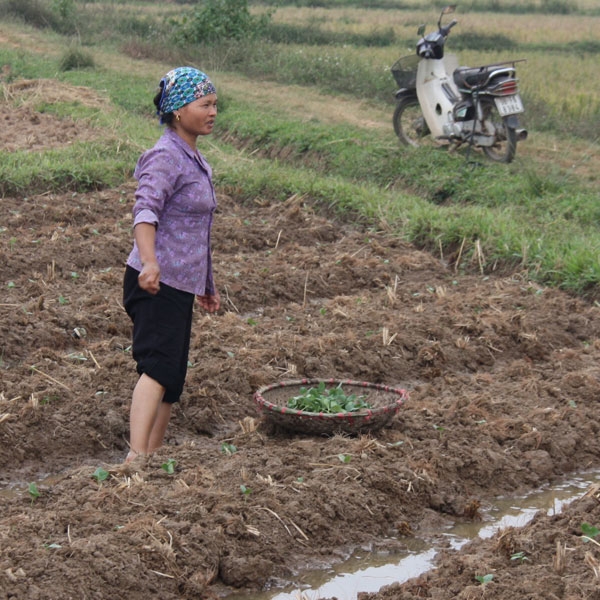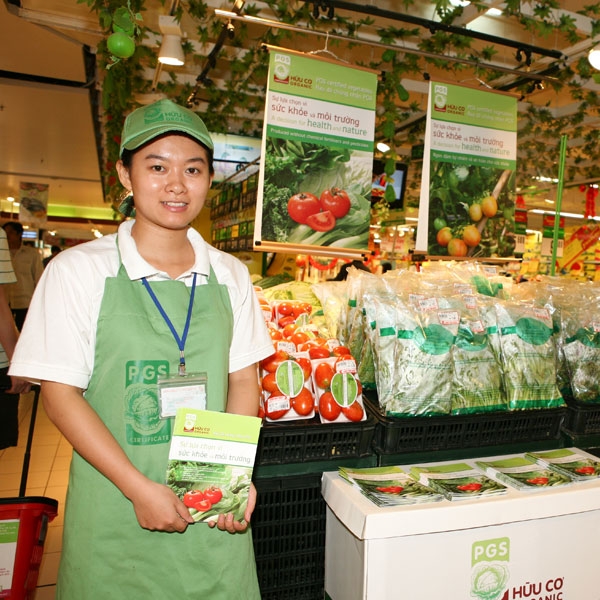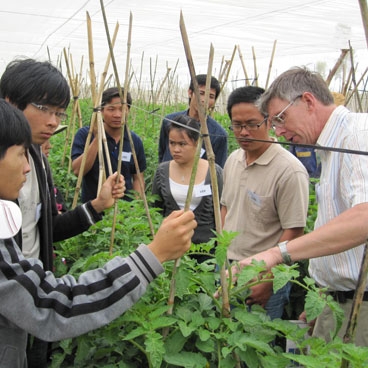DALAT – Fresh Studio, Dalat University, Applied Plant Research (PPO) and Van Hall-Larenstein (VHL) successfully developed an R&D, extension and education project for the Dalat vegetable sector.
PPO and VHL are part the world-leading agriculture research and education institute, Wageningen UR. After having won a competitive grant in the Dutch funded “Vietnam facilty” program, the project team began its implementation in late 2010. The goal was to find tailored practical solutions for a number of serious cultivation problems faced by the market oriented vegetable sector of the Dalat region.
These problems relate to productivity and profitability constraints in vegetable farming, irresponsible pesticide use, over-abundant fertilizer use, farmer safety and consumer food safety. The current vegetable sector in the Dalat region has limitations when it comes to farmer management skills, decision-making ability, and in finding innovative solutions to address modern market requirements such as sustainable production methods, food safety and off season production. The project includes an innovative cooperation model between farmers, Dalat University, Fresh Studio, market players, agricultural policy makers and others which continually applies innovative R&D and extension to promote sustainable and profitable vegetable farming in the Dalat region of Vietnam.
Since the inception workshop in January 2011, much has occured. Based on a selection of focus crops and key issues, specialists in arable vegetable farming from PPO have developed master classes about these topics. These on-site master classes were presented to the extension team of Fresh Studio, Dalat University lecturers, and a selection of top Bachelor and Master students. The Fresh Studio team “translated” these into “farmer master classes”. Together with an extension team of Fresh Studio, farmers developed possible ideas for innovations to be tested on-site in different agro-ecological zones, as well as at the Fresh Studio R&D farm.Also interesting to read:








